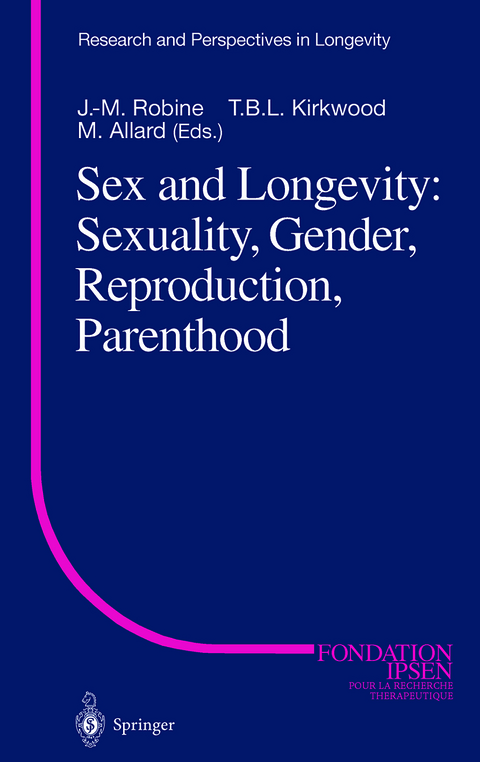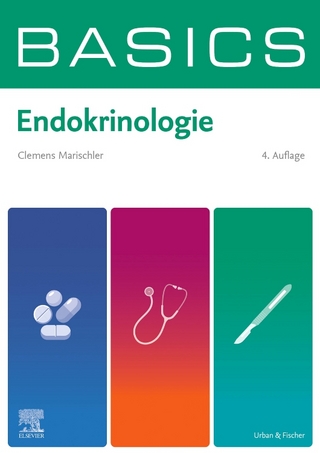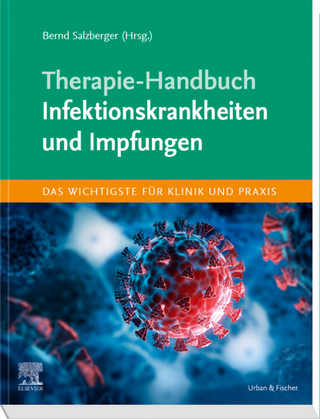
Sex and Longevity: Sexuality, Gender, Reproduction, Parenthood
Seiten
2011
|
Softcover reprint of the original 1st ed. 2001
Springer Berlin (Verlag)
978-3-642-64026-1 (ISBN)
Springer Berlin (Verlag)
978-3-642-64026-1 (ISBN)
In most human societies, females live longer than males. Some people live in good health to great ages while others die relatively young. The tendency to live longer seems to run in families. Parenthood also seems to influence survival. Why should females survive well after they lose fertility? In the current context of improved diet, public health and medicine, many more people will live longer, leading to an ageing of the human population. An international group of experts, hosted by the Fondation IPSEN, met during the third meeting of the series "Colloques Médecine et Recherche", devoted to "Research and Perspectives in Longevity", to discuss the latest advances towards understanding why some of us age faster than others.
A central concept in the evolutionary theory of senescence is the idea that ageing results from life-history trade-offs. In particular, the disposable soma theory suggests that longevity is determined through the setting of longevity assurance mechanisms so as to provide an optimal compromise between investments in somatic maintenance (including stress resistance) and in reproduction. Comparative studies among mammalian species confirm that cells from long-lived species appear to have a greater intrinsic capacity to withstand stresses than cells from short-lived species. Childbearing at older ages has become increasingly common in modern societies because of demographic changes, medical progress and personal choice. While the detrimental effects of late reproduction on infant mortality and genetic diseases have been well documented, little is known about the possible postponed detrimental effects of late parenting.
A central concept in the evolutionary theory of senescence is the idea that ageing results from life-history trade-offs. In particular, the disposable soma theory suggests that longevity is determined through the setting of longevity assurance mechanisms so as to provide an optimal compromise between investments in somatic maintenance (including stress resistance) and in reproduction. Comparative studies among mammalian species confirm that cells from long-lived species appear to have a greater intrinsic capacity to withstand stresses than cells from short-lived species. Childbearing at older ages has become increasingly common in modern societies because of demographic changes, medical progress and personal choice. While the detrimental effects of late reproduction on infant mortality and genetic diseases have been well documented, little is known about the possible postponed detrimental effects of late parenting.
Human Longevity at the Cost of Reproductive Success: Trade-Offs in the Life History.- Human Longevity and Parental Age at Conception.- Gender-Linked Effects on the Inheritance of Longevity A Population-Based Study: Valserine Valley XVIII-XXth Centuries.- Genes and Centenarians.- Evolutionary Ecology of the Human Female Life History.- Caretaking, Risk-Seeking, and Survival in Anthropoid Primates.- The Ecology of Menopause.- Androgen Deficiency in Aging Males and Healthy Aging.- Patterns of Childbearing and Mortality in Norwegian Women. A 20-year Follow-Up of Women Aged 40-96 in the 1970 Norwegian Census.- Sex Differentials in the Evolution of Life Expectancy and Health in Older Age.
| Erscheint lt. Verlag | 18.9.2011 |
|---|---|
| Reihe/Serie | Research and Perspectives in Longevity |
| Zusatzinfo | X, 142 p. 7 illus. in color. |
| Verlagsort | Berlin |
| Sprache | englisch |
| Maße | 155 x 235 mm |
| Gewicht | 247 g |
| Themenwelt | Medizin / Pharmazie ► Medizinische Fachgebiete ► Gynäkologie / Geburtshilfe |
| Medizinische Fachgebiete ► Innere Medizin ► Endokrinologie | |
| Medizin / Pharmazie ► Medizinische Fachgebiete ► Urologie | |
| Schlagworte | Ageing • aging • androgen deficiency • Cells • Evolution • Life Expectancy • Longevity • menopause • parental age • Reproduction • senescence • Sex • Sexuality • Stress • Women |
| ISBN-10 | 3-642-64026-5 / 3642640265 |
| ISBN-13 | 978-3-642-64026-1 / 9783642640261 |
| Zustand | Neuware |
| Informationen gemäß Produktsicherheitsverordnung (GPSR) | |
| Haben Sie eine Frage zum Produkt? |
Mehr entdecken
aus dem Bereich
aus dem Bereich
Wechseljahresbeschwerden lindern, Erkrankungen heilen, …
Buch | Hardcover (2023)
Trias (Verlag)
26,00 €
Buch | Softcover (2023)
Urban & Fischer in Elsevier (Verlag)
50,00 €


